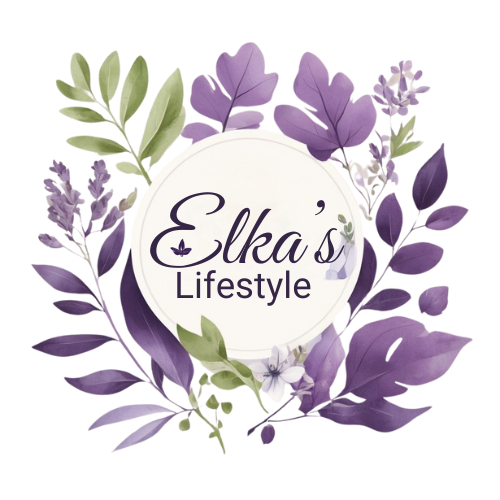
Imagine waking up with a radiant, healthy glow. No more dull, uneven skin that makes you feel self-conscious. As a busy person, a complex skin care routine might seem overwhelming. But, with a few simple steps, you can achieve your dream complexion.
In this guide, we’ll cover the basics of a skin care routine for beginners. You’ll learn how to take care of your skin and enhance its health. Whether you have oily, dry, or combination skin, we’ve got strategies for you. Say goodbye to skin problems and hello to a radiant, youthful look.
Understanding Your Skin Type
Before starting your skin care journey, knowing your skin type is key. It helps you pick the right products for your skin. Let’s look at the main types of skin and what they need.
1. Oily Skin
Oily skin looks shiny and feels greasy. It often gets breakouts. This happens when your skin makes too much oil. Use oil-free products to control shine and prevent blemishes.
2. Dry Skin
Dry skin feels tight and flaky. It looks dull. This is because your skin barrier is weak, losing water. Use moisturizing products to keep your skin hydrated.
3. Combination Skin
Combination skin has oily and dry areas. The T-zone (forehead, nose, chin) is oily, while cheeks are dry. You need products that balance these zones.
Finding out your skin type is the first step to a good skin care routine. Knowing your skin helps you choose the best products and techniques.
“Knowing your skin type is the key to finding the right skin care products and regimen for your complexion.”
The Importance of Cleansing
Proper skin cleansing is key to a good skin care routine. It removes dirt, oil, and impurities. This makes your skin ready to absorb the cleansing products and treatments that come next. It’s a step you can’t skip, no matter your skin type.
Cleansing does a lot for your skin:
- It unclogs pores, preventing breakouts and keeping your skin clear.
- It removes makeup, sunscreen, and other stuff that can clog pores and dull your skin.
- It balances your skin’s pH levels, helping it stay healthy.
- It gets your skin ready to absorb and use the next skincare steps, like serums and moisturizers.
Finding the right cleansing routine can greatly improve your skin’s look and health. Try out different cleansing products and methods to see what’s best for your skin.
“Cleansing is the first and most important step in any effective skin care regimen.”
By focusing on cleansing, you set the stage for a glowing, healthy complexion. Make it a part of your daily skin care routine for the best results.
Moisturizing for Healthy Skin
Healthy, glowing skin starts with good moisturizing. It’s a key part of your daily routine. It keeps your skin hydrated and soft. No matter your skin type, the right moisturizer and how you use it can change everything.
1. Finding the Right Moisturizer
Finding the right moisturizer is important. It should match your skin type and needs. Skin moisturizing products vary, from light lotions to thick creams. Choose the one that suits you best.
- For oily skin, choose oil-free, non-comedogenic moisturizers to avoid clogged pores.
- Dry skin types need more hydrating moisturizer.
- Combination skin does well with a moisturizer that works on both oily and dry areas.
2. Applying Moisturizer Correctly
After picking the right moisturizer, apply it correctly for best results. Here’s how:
- Clean your skin well to remove dirt.
- Put the moisturizer on in small circles, starting from the middle of your face and moving outwards.
- Massage it into your skin until it’s fully absorbed.
- Pay extra attention to dry areas like your cheeks and around your eyes.
By following these steps, your skin will stay hydrated and healthy. This helps keep your skin looking bright and radiant.
Skin Care Routine for Beginners
Starting a basic skin care routine for beginners is key for healthy, glowing skin. It’s perfect for those new to skin care or wanting to simplify their routine. This guide will show you how to begin.
A beginner’s routine includes cleansing, moisturizing, and protecting from the sun. Let’s explore each step:
- Cleanse: Clean your face gently in the morning and at night. This removes dirt, oil, and impurities that can clog pores. Choose a mild cleanser that fits your skin type.
- Moisturize: Moisturizing keeps your skin hydrated and nourished. Find a moisturizer that meets your skin’s needs, whether it’s dry, oily, or a mix.
- Protect: Sunscreen is vital to protect your skin from UV rays. These rays can cause early aging and increase skin cancer risk. Use a broad-spectrum sunscreen with SPF 30 or higher.
Consistency is crucial in a skin care routine for beginners. Follow these skin care routine steps every day. You’ll be on your way to healthy, radiant skin.
Sun Protection: A Crucial Step
Keeping your skin safe from the sun’s harmful UV rays is key. Sun exposure can cause early aging, sunspots, and even skin cancer. So, it’s vital to take the right steps to protect your skin.
Understanding the importance of sun protection and picking the right sunscreen is crucial. It helps keep your skin healthy and glowing.
1. Understanding SPF
SPF stands for sun protection factor. It shows how well a sunscreen blocks UVB rays, which cause sunburns. The higher the SPF, the better the protection.
Experts say to use a sunscreen with at least SPF 30. You should reapply it every two hours. Or more often if you’re swimming or sweating.
2. Choosing the Right Sunscreen
When picking a sunscreen, think about your skin type and what you do. If you have oily or acne-prone skin, choose a non-comedogenic, oil-free option. For dry skin, a moisturizing sunscreen is best.
For activities outside, a water-resistant sunscreen is best. It stays on your skin even when you’re sweating or swimming.
Sun protection isn’t just for sunny days. UV rays can still harm your skin on cloudy or overcast days. So, always apply sunscreen, every day.
Adding sun protection to your daily skincare routine is easy and effective. It helps keep your skin healthy and young.
Anti-Aging Essentials
Many people want to keep their skin looking young and radiant. Using anti-aging skin care can help prevent and reduce signs of aging. This includes fine lines, wrinkles, and age spots. Discover the key ingredients and products for a more vibrant look.
Retinol is a must-have for anti-aging. It boosts collagen, improves skin texture, and reduces wrinkles. Adding retinol products to your routine is a smart move.
Vitamin C is another key ingredient. It brightens the skin, fades dark spots, and fights environmental stressors. Choose serums and moisturizers with stable vitamin C for the best results.
- Add anti-aging products with retinol and vitamin C to your daily routine.
- Exfoliate often to get rid of dead skin cells and show off a younger look.
- Always use a broad-spectrum sunscreen to protect your skin from aging.
“Investing in high-quality anti-aging products is one of the best things you can do for your skin’s long-term health and appearance.”
Consistency is key for a youthful glow. Stick to a routine that targets your anti-aging concerns. You’ll be on your way to a brighter, more radiant complexion.
Battling Acne: Tips for Clear Skin
Dealing with acne can be tough, but there are ways to get clearer skin. You can try over-the-counter products or see a dermatologist. Knowing your options helps you find the best fit for your skin.
1. Over-the-Counter Acne Treatments
For mild to moderate acne, try over-the-counter treatments first. Look for products with benzoyl peroxide, salicylic acid, or retinoids. These can clear pores, reduce swelling, and dry out spots. Remember, using these products regularly is important.
2. When to See a Dermatologist
If your acne is severe or doesn’t get better with over-the-counter products, see a dermatologist. They can give you a treatment plan that might include stronger acne medications, topical creams, or oral treatments. A dermatologist can also find out why you have acne and help fix it.
There’s no single solution for acne treatment. You might need to try a few things to find what works for you. With patience and the right advice, you can beat acne and get the skin you want.
Sensitive Skin Care
If you have sensitive skin, you know how important gentle care is. Sensitive skin needs extra attention to stay healthy and look good. Using soothing, fragrance-free products helps keep your skin glowing and comfortable.
It’s crucial to avoid potential irritants when caring for sensitive skin. This means staying away from harsh chemicals, fragrances, and rough exfoliants. Instead, choose gentle skin care products made for sensitive skin.
“The key to caring for sensitive skin is to use products that are gentle, non-irritating, and fragrance-free.”
For cleansing, pick sensitive skin care cleansers without harsh detergents. Look for ones with soothing ingredients like aloe vera or chamomile. Clean your skin gently with your fingertips, not with a washcloth or exfoliator.
Moisturizing is also key for sensitive skin. Use a gentle skin care product that’s fragrance-free and packed with nourishing ingredients. Apply it gently, without rubbing or tugging.
By following these steps, you can meet your sensitive skin’s needs. This will help you achieve a healthy, radiant look without irritation.
Dermatologist-Recommended Skin Care Products
Getting advice from a dermatologist is very valuable for skin care. They know the best products for your skin type and problems. Check out these top picks for your skin care routine to keep your skin healthy and glowing.
1. Cleansers
A good cleanser is key for your skin care. Look for ones with ceramides, hyaluronic acid, or glycerin. These ingredients help clean your skin without drying it out.
2. Moisturizers
Moisturizing is essential for healthy skin. Dermatologists suggest dermatologist-recommended products with retinol, vitamin C, or alpha hydroxy acids. These ingredients help with specific skin issues and keep your skin hydrated.
3. Sunscreens
Protecting your skin from UV rays is a must. Dermatologists recommend skin care product recommendations with at least SPF 30. This helps prevent sun damage and early aging.
4. Targeted Treatments
Your dermatologist might suggest special products for your skin. This could include retinoids, chemical exfoliants, or serums for acne, fine lines, or uneven skin tone.
“Investing in dermatologist-recommended skin care products is a wise choice for anyone looking to achieve healthy, glowing skin.” – Dr. Sarah Johnson, Board-Certified Dermatologist
Consistency is the secret to a great skin care routine. Add these dermatologist-recommended products to your daily routine. Trust your dermatologist for the best results.
Consistency: The Key to Success
Keeping up a consistent skin care routine is key to healthy, glowing skin. It’s not just a trend, but a proven way to get the most out of your skin care. By following a routine, you can see big changes in how your skin looks.
Starting a consistent skin care routine for beginners might seem hard, but it’s worth it. When you stick to it, your skin can really shine. It becomes healthier and more vibrant. This is because your skin gets used to the products and care you give it.
To keep your skin care routine going strong, try these tips:
- Make a simple, effective routine that fits your daily life.
- Use reminders or visual cues to remember your routine.
- Try new products and methods, but don’t change too much at once.
- Be patient, as it takes time for your skin to adjust and show results.
Adopting a consistent skin care routine for beginners changes everything. It’s a step towards better, more radiant skin. This boosts your confidence and overall health. Consistency is the secret to unlocking your skin’s full potential.
Conclusion
By following the steps in this article, you can create a skin care routine that fits you. You’ll learn how to understand your skin’s needs and add important steps like cleansing and moisturizing. This will help you on your way to healthier, more radiant skin.
Starting this routine will not only make your skin look better but also boost your confidence. Remember, being consistent is crucial. Stick to these steps every day. With time and effort, you’ll see the lasting benefits of a skin care routine for beginners, leading to glowing skin and better skin health.
Be proud of taking care of your skin. The changes might take time, but with persistence, you’ll see a big improvement. Enjoy the journey and the confidence that comes with a skin care routine made just for you.
FAQ
What are the essential steps in a skin care routine for beginners?
A beginner skin care routine includes cleansing, moisturizing, and protecting from the sun. These steps clean your skin, keep it hydrated, and protect it from UV rays.
How do I determine my skin type?
To find out your skin type, watch how it acts all day. Oily skin is shiny and gets breakouts. Dry skin feels tight and flaky. Combination skin is oily in some spots and dry in others.
Why is cleansing so important in a skin care routine?
Cleansing is the base of a good skin care routine. It gets rid of dirt, oil, and impurities. This stops pores from clogging, prevents breakouts, and keeps your skin bright.
How do I choose the right moisturizer for my skin?
Pick a moisturizer that fits your skin type. Oily skin needs a light, oil-free moisturizer. Dry skin needs something richer. Combination skin can use a moisturizer that’s versatile and hydrates without clogging pores.
Why is sun protection so important in a skin care routine?
Sun protection is key to avoid early aging, sun damage, and skin cancer. Use a broad-spectrum sunscreen with SPF 30 or higher every day, even on cloudy days.
What are some key anti-aging ingredients to look for?
Look for retinoids, vitamin C, and hyaluronic acid in your products. They reduce wrinkles, improve skin elasticity, and make your skin glow.
How can I treat acne breakouts at home?
For mild to moderate acne, try over-the-counter products with salicylic acid or benzoyl peroxide. But for serious acne, see a dermatologist for the right treatment.
How do I care for sensitive skin?
Sensitive skin needs gentle, fragrance-free products. Avoid harsh scrubs or alcohol-based toners. Always test new products on a small area first to make sure they’re safe.
What are some dermatologist-recommended skin care products?
Dermatologists suggest products with retinoids, vitamin C, hyaluronic acid, and SPF. Top brands include SkinCeuticals, CeraVe, and La Roche-Posay.
Why is consistency important in a skin care routine?
Being consistent is crucial for healthy, glowing skin. A regular routine lets products work well and helps your skin adjust and respond positively.




